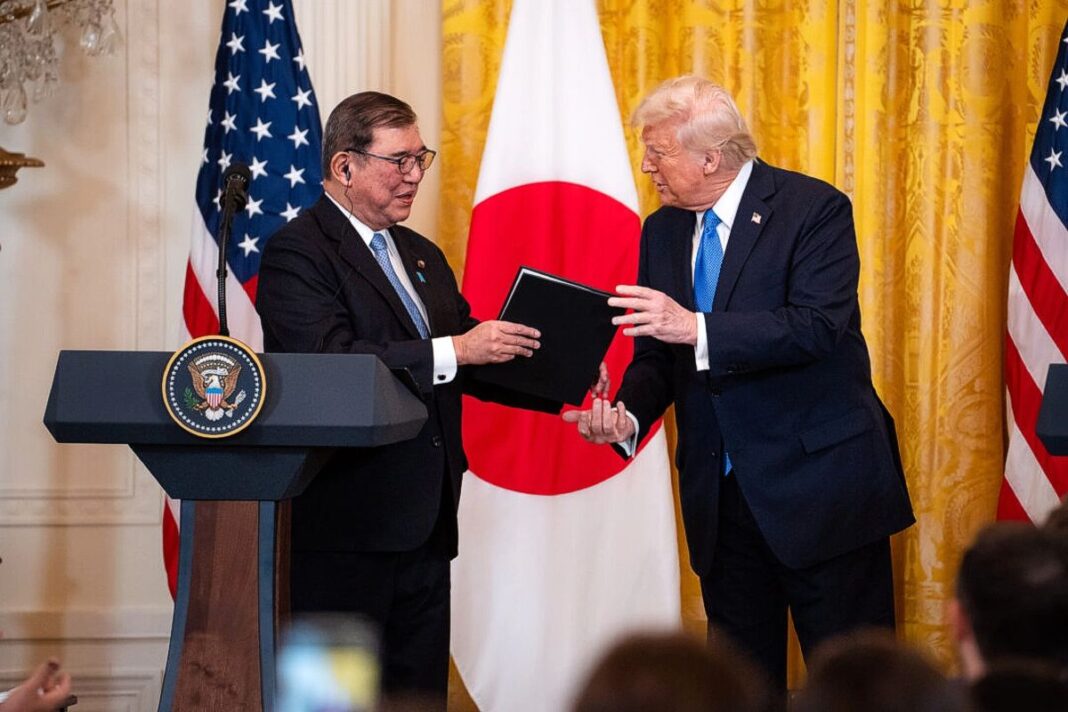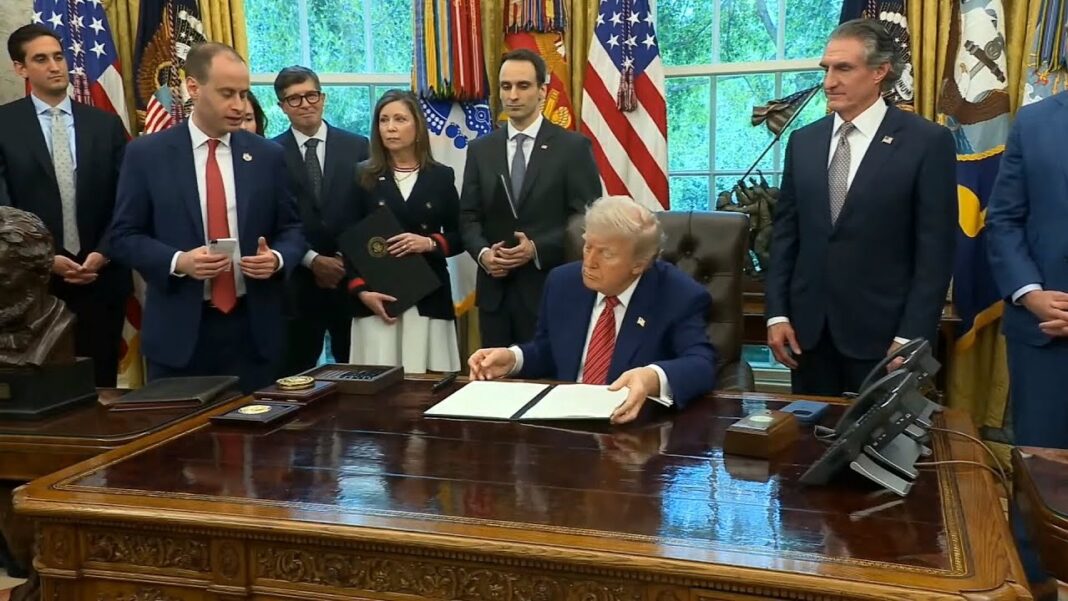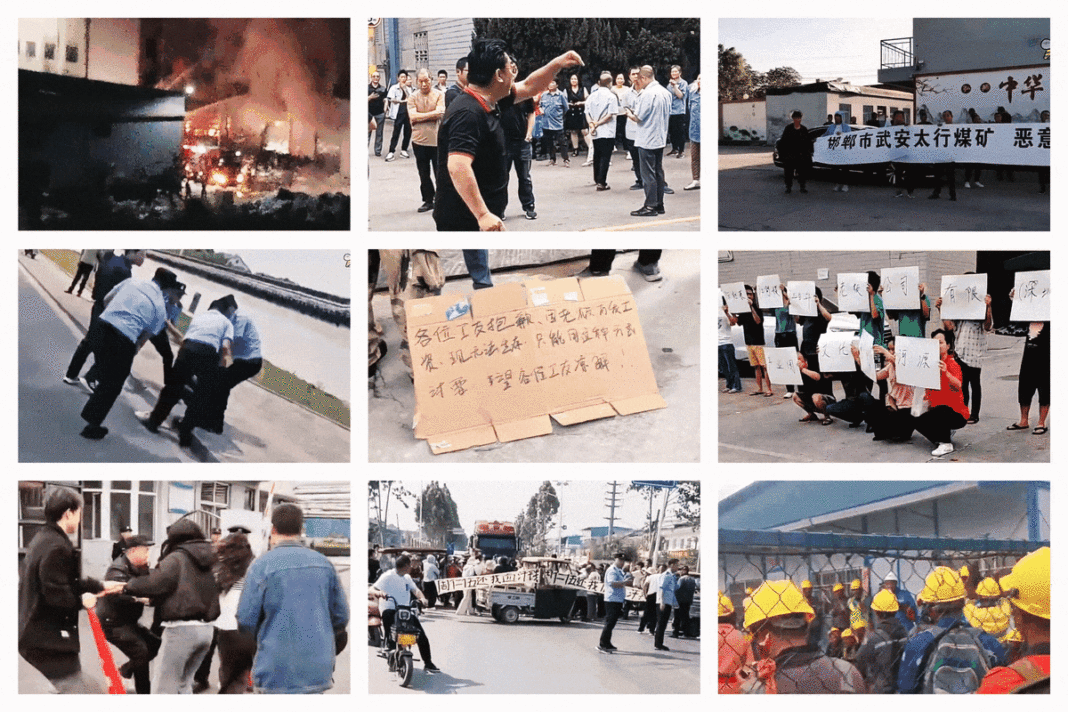The president said he would be holding a ‘big rally’ at U.S. Steel in Pittsburgh next week.
WASHINGTON—President Donald Trump announced on May 23 that he has approved the “planned partnership” between U.S. Steel and Japan’s Nippon Steel, stating that the company will stay in Pittsburgh and is expected to create at least 70,000 jobs.
“I am proud to announce that, after much consideration and negotiation, U.S. Steel will REMAIN in America, and keep its Headquarters in the Great City of Pittsburgh,” Trump wrote on Truth Social.
“For many years, the name ‘United States Steel’ was synonymous with Greatness, and now, it will be again. This will be a planned partnership between United States Steel and Nippon Steel, which will create at least 70,000 jobs and add $14 billion to the U.S. Economy,” he added.
Trump said that the majority of the investment “will occur in the next 14 months.”
“This is the largest Investment in the History of the Commonwealth of Pennsylvania. My Tariff Policies will ensure that Steel will once again be, forever, MADE IN AMERICA. From Pennsylvania to Arkansas, and from Minnesota to Indiana, AMERICAN MADE is BACK,” Trump said.
The president also announced that he would be holding a “big rally” at the U.S. Steel facility in Pittsburgh on May 30.
Nippon Steel, the world’s fourth-largest steelmaker, announced in December 2023 that it would purchase U.S. Steel for $14.9 billion in an all-cash agreement.
A few months later, U.S. Steel shareholders approved the takeover bid.
However, President Joe Biden opposed the deal, citing national security concerns.
“U.S. Steel has been an iconic American company for more than a century, and it should remain totally American,” Biden told union workers during a speech at the United Steelworkers headquarters in Pittsburgh on April 17, 2024.
In early January, weeks before leaving office, Biden blocked the acquisition deal, citing the need to maintain a domestically owned steel industry.
He described steelmaking as a strategic sector vital to U.S. security and resilient supply chains.
By Emel Akan








